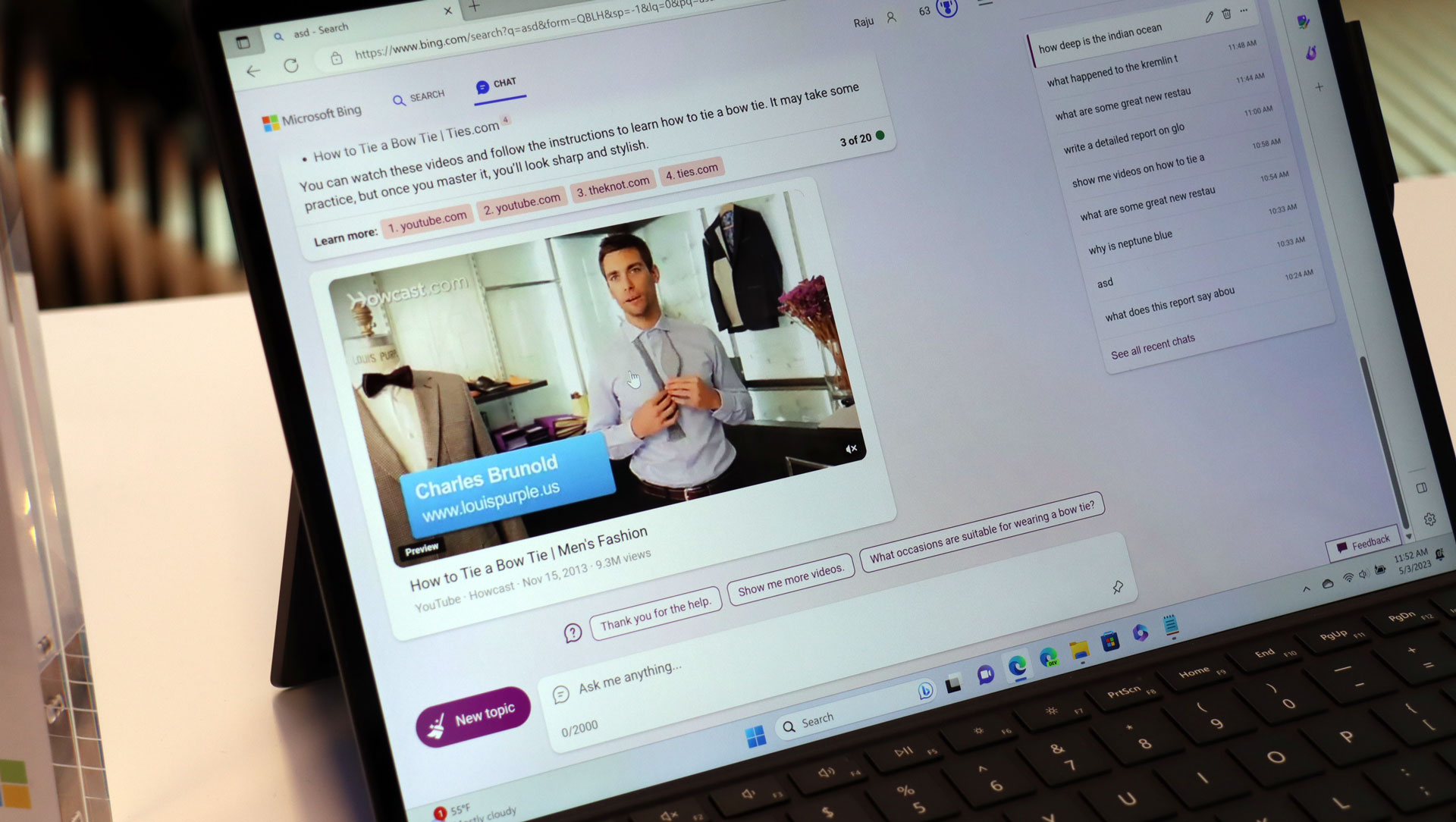
Bing AI should soon be usable in other browsers besides Edge, so the army of Chrome users out there can get a piece of Microsoft’s chatbot if they so wish.
Neowin spotted that Microsoft’s head of Advertising and Web Services, Mikhail Parakhin, told us more about where Bing AI will be headed in the near future (on Twitter).
In addition, larger context size for Balanced, big improvements in disengagement rate (especially for code writing), improvements in Bing Image Creator, hopefully first experiments in enabling third party browsers.May 30, 2023
That includes the “first experiments in enabling third-party browsers”, as you can see from the tweet.
Can’t you already get the Bing chatbot in Chrome (or other browsers for that matter)? No, not as such, although admittedly there are workarounds in the form of unofficial extensions (clunky fudges, really) for Chrome and Firefox to enable Bing AI within their walls.
Official support would obviously be much better to have, though, and it’d be a good way for Microsoft to get more folks using the chatbot, too.
As well as third-party browser support, Parakhin talks about major improvements for the ‘disengagement rate’, meaning cures for when the chatbot falls over and fails to respond, ending the current session abruptly.
We’re also promised that Bing Image Creator will get better, so there are some useful tweaks inbound for Microsoft’s AI.
All this will apparently be part of a bigger update than normal for Bing AI in June, and this will also include a “large-scale plugin rollout”.
In a previous tweet, Parakhin notes: “We are turning everything into a plugin (including different facets of Search!) – and it results in a very significant metrics improvement.”
As we’ve been told before, plug-ins will be available across all manner of platforms, such as Spotify and Trip Advisor to pick out a couple of quick examples.
Analysis: One Bing to rule them all
The news that the Bing chatbot is coming to other browsers before too long, and won’t just be exclusive to Microsoft Edge, is obviously great for anyone who doesn’t want to use Edge. And that’s a fair few folks, of course (particularly those who might be tired of Microsoft trying to persuade them that its browser is great, and that it should be the default choice, via a bunch of ads and various prompting within Windows).
This move will help Microsoft, too, in terms of creating a much wider potential audience for its Bing AI.
It represents a change of tack, because instead of leveraging the chatbot to attempt to get folks using Edge, now Microsoft will be working things the other way around – looking at bringing more users on board the AI via Chrome, Firefox, and other browsers. And that surely is a key consideration, particularly when we see how crazy everything is around AI right now. The artificial intelligence bandwagon is positively groaning under the weight of everyone clambering aboard.
That third-party plug-in rollout will also drive Bing AI usage, too, and improvements in lessening the frequency of the chatbot’s abrupt halting of sessions in some cases will doubtless be useful in persuading people of the AI’s merits.
Microsoft has already removed an important hurdle that may have stopped a number of folks from using its chatbot – namely the requirement to sign in with a Microsoft Account (though the AI is more limited if you don’t). All of which underlines the pressure Microsoft evidently feels to push the adoption of Bing AI over pretty much every other service or product right now.







